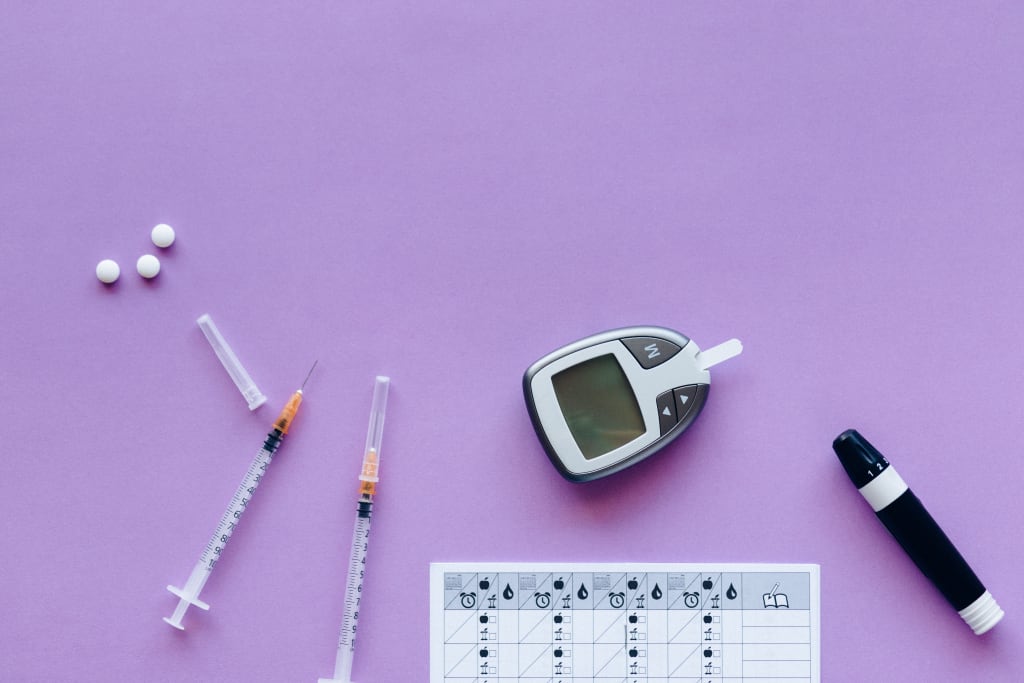5 STEPS TO REDUCE BLOOD SUGAR LEVEL
Support Healthy Blood Sugar Levels

Step 1: Engage in regular physical exercise
Stay physically active and engage in regular physical activity to improve insulin sensitivity and promote better blood sugar control. Regular exercise is beneficial for managing blood sugar levels. It can help increase insulin sensitivity, allowing your cells to use sugar more effectively. Aim for at least 150 minutes of moderate-intensity aerobic activity, such as brisk walking, cycling, or swimming, spread throughout the week. Additionally, consider incorporating strength training exercises to improve muscle health and glucose metabolism.
Understand the different types of diabetes, such as type 1, type 2, and gestational diabetes. Educate yourself about the causes, symptoms, and management strategies for each type. Check your blood sugar levels regularly as advised by your healthcare team. Monitoring your levels helps you understand how different foods, activities, and medications affect your blood sugar. It enables you to make necessary adjustments to maintain optimal control.

Step 2: Consume a balanced and nutritious diet
Making healthy food choices is essential for managing blood sugar levels. Focus on a balanced diet that includes nutrient-dense foods, high in fiber like fruits, vegetables, whole grains and legumes into your meals. These foods have a lower glycemic index and can help regulate blood sugar levels. Limit your intake of processed foods, sugary snacks, and beverages, as they can cause spikes in blood sugar. Additionally, spreading your meals and snacks evenly throughout the day can help maintain steady blood sugar levels.
Watch The Free Video Presentation here
Step 3: Stay hydrated and limit sugary drinks
Hydration is important for overall health, including blood sugar management. Opt for water or unsweetened beverages as your primary choice. Avoid sugary drinks such as soda, fruit juices, sports drinks, and sweetened teas, as they can cause blood sugar spikes. If you experience low blood sugar, it's advisable to treat it with a glucose source rather than relying on sugary beverages. Drink an adequate amount of water throughout the day to stay hydrated. Water helps flush out toxins and supports overall health.

Step 4: Monitor carbohydrate intake
Carbohydrates have the most significant impact on blood sugar levels. Being mindful of your carbohydrate intake is crucial. Consider working with a registered dietitian or certified diabetes educator to determine the appropriate amount of carbohydrates for your specific needs. They can help you create a personalized meal plan that takes into account your preferences and blood sugar goals. Be mindful of portion sizes to avoid overeating. Use measuring cups or a food scale to ensure you're consuming appropriate portions of carbohydrates, proteins, and fats. This can help manage blood sugar levels and maintain a healthy weight.
Watch The Free Video Presentation here
Step 5: Manage stress levels and get enough sleep
Stress and inadequate sleep can affect blood sugar levels. High-stress levels trigger the release of stress hormones like cortisol, which can cause elevated blood sugar. Find healthy ways to manage stress, such as practicing relaxation techniques, deep breathing exercises, meditation, yoga, engaging in hobbies, or seeking support from friends and family. Aim for 7-9 hours of quality sleep each night, as insufficient sleep can disrupt insulin sensitivity and lead to higher blood sugar levels. Prioritize self-care to reduce stress and promote overall well-being.
Remember, it's crucial to consult with a healthcare professional, such as a doctor or diabetes educator, for personalized advice and guidance based on your specific health needs and medical history. They can provide you with comprehensive support and help you develop an effective blood sugar management plan. Schedule regular check-ups with your healthcare provider to monitor your blood sugar levels, assess your overall health, and make any necessary adjustments to your diabetes management plan. This helps ensure you stay on track.
About the Creator
Enjoyed the story? Support the Creator.
Subscribe for free to receive all their stories in your feed. You could also pledge your support or give them a one-off tip, letting them know you appreciate their work.





Comments
There are no comments for this story
Be the first to respond and start the conversation.